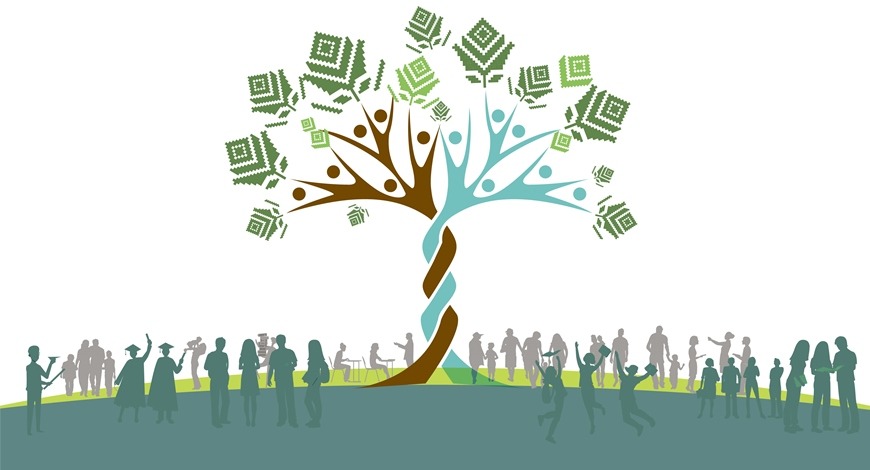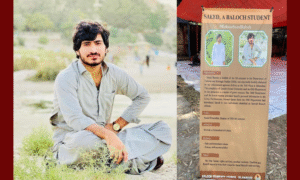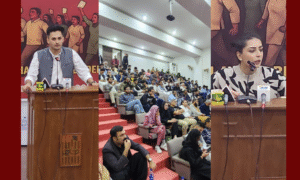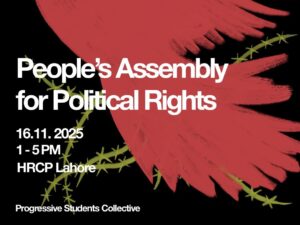Formal education in this age has merely became a tool for state’s propaganda. Schools, colleges and universities are busy indoctrinating specific narratives into young minds, abstaining them from critical thinking and impartial analysis. Essence of democracy lies in free will of citizens and their freedom to speech and thinking. If any state’s legitimacy lies on brainwashing their young ones then there’s a serious question mark on its entire existence.
But first things first. Do we really consider democracy a desideratum, a good thing in itself, for which we should strive? Or would it be better to do away with old sentimental and unserviceable ideas of democracy that we have learned to cherish, perhaps, unthinkingly, and to swim in the new and turbulent political stream? We need to face the issue boldly and not sentimentally because apart from global problems the ruthless march of political events in our own country has raised many obstinate questions in the minds of people and created new dangers for the body politic. Theoretically, democracy is a system of government and a way of life which offers greater scope than any other political system for the development of human individuality and the varied talents that nature has bestowed upon individuals and groups. Any system which seeks to impose a rigid uniformity of ideas and practices is both against nature and the spirit of man.
While totalitarian regimes are intolerant of differences in the interest of ‘efficiency’ (understood in a narrow sense), democracy stands for respecting the individual and the uniqueness of man. Due to this it encourages discussion, even if there is a clash of ideas, out of which emerges the truth, progressive thought and tolerance for cultural and intellectual differences. From the point of view of the educationist any social order which suppresses these values is retrograde and obscurantist.
This is, of course, only one side of the picture. Modern democracy has so far proved to be a mixed blessing. It has been cleverly exploited by vested interests — the demagogue without principles, the capitalist without a social conscience, the politician without a vision and a media without idealism. It has failed to educate the electorate to be able to exercise the power of their vote or to safeguard their rights and privileges. It has not addressed that unequal distribution of wealth which is economic, cultural and moral injustice. It has been content to allow a majority of citizens to not lead full lives. In times of emergency it has proved less efficient than the machinery of totalitarian regimes. Democracy has failed to fulfil our hopes because we have been content with certain forms of political democracy alone and have not succeeded in establishing it in other aspects of life. Without building up economic, social and cultural democracy, political democracy becomes a pliant tool in the hands of unscrupulous power-seekers. Only a fair distribution of wealth, a generous dissemination of cultural and social services and the breaking down of invidious class distinctions can make democracy genuine and effective. How to go about achieving it is the job of the statesman. It is fatally easy to put the blame on democracy or on the people but difficult to overcome the obstacles with tact, patience, hard and steady work.
What about the role of the educators? They must develop those basic qualities of character among their pupils which are necessary for the successful functioning of a democracy. These qualities include first and foremost a passion for social justice. Our young men and women must demand for others, irrespective of their religion, caste, creed and race, the good things that they desire for themselves. The heart of a truly educated man must respond to the sorrows and joys of all fellow humans and must not be circumscribed by prejudices and narrow loyalties.
A spirit of tolerance is a major objective of democratic education because cultural and intellectual differences may lead to friction and unless there is tolerance of the other’s viewpoint, great harm may be, in fact is being, caused in society. The narrow, intolerant and revivalist outlook of some sections is causing irreparable damage to society. Schools can give valuable help by encouraging the study of cultural and religious movements, an unbiased study of history and above all through the influence of the teacher’s tolerant personality.
Closely akin to this objective is one to raise the standard of education in schools and colleges. There should be a systematic cultivation of students so they can understand the complex problems of modern civilization, exercise their rights and fulfil their duties. Many of our problems exist not because of ill will but because of ignorance and apathy which our education system does little to eradicate.
The education system must reflect greater appreciation for the country, its culture, its intellectual and artistic movements and its ethical values and ideals. But this should be enlightened and not blind. Patriotism which blinds us to our faults and other’s merits, which obscures our sense of justice and clarity of vision, is, in effect, misguided nationalism.
Some may argue whether it is right in principle that education should be biased towards a democratic or any other type of social order. Would it not be indoctrination? If schools can be used for indoctrinating children with the poison of racial arrogance and superiority, blind patriotism, suicidal nationalism and religious fervour, with sectarian narrowness and war hysteria why should we not take the risk that may possibly be involved in teaching children to be just and brave, truthful and intelligent, broad-minded and humane in their outlook?
The Students’ Herald News Desk focuses on reporting the latest news regarding student politics and campus updates to you.
The News Desk can be reached at admin@thestudentsherald.com




